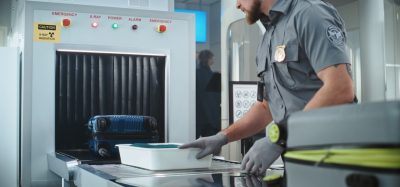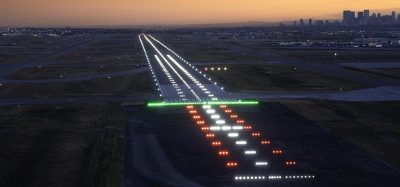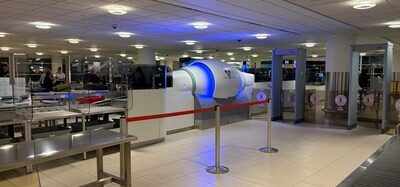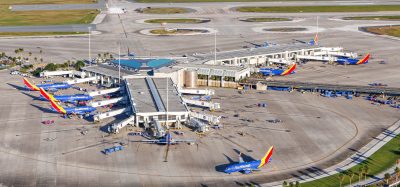A holistic approach to airport security in the evolving airspace
Posted: 16 August 2019 | Roni Tidhar - Israel Aviation Authority | No comments yet
Roni Tidhar, Israel Airports Authority’s Head of International Consulting Services – Commercial branch, discusses how airports must consider and adapt their security procedures in the evolving airspace.
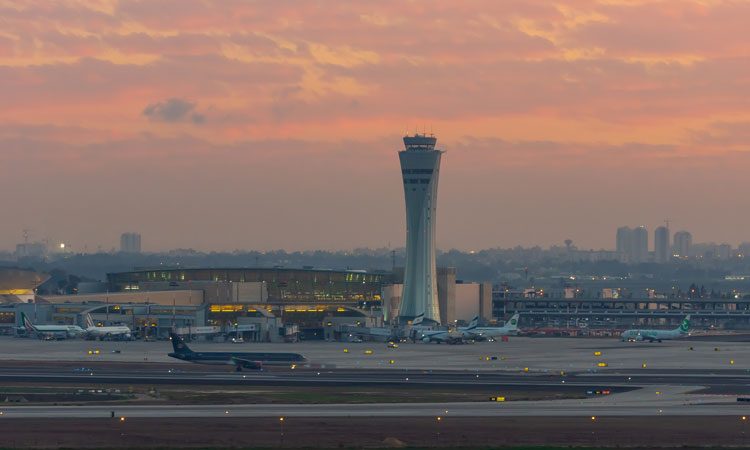

Why does the Israel Aviation Authority suggest a holistic approach in regard to airport security?
An international airport needs high standards in efficiency, operational time framework, safety and liability. This complexity requires solid security foundations: A comprehensive holistic security array. This can only be achieved with a holistic approach concept, meaning all security components need to be under the responsibility of one jurisdiction. In our case, Ben-Gurion International Airport security division is responsible for all security programmes.
But we cannot forget about cyber-security: We have a Ground Operation division that operates the airport’s emergency plan. The divisions influence each other, sharing threat mitigation, methods and knowledge, and coordinate to supply a quick first response and allow operational flexibility to gain high-resolution security achievements. We believe that responsibility equals authority, so we must have the skillset and legal infrastructure to act with.
Join us live: Shaping the Next Generation of Hold Baggage and Air Cargo Screening
Join us live for an insightful webinar on 11th December at 14:00 GMT, in collaboration with Smiths Detection, as we explore the strategic balance of operational efficiency, regulatory compliance, and sustainability in high-volume security environments.
This session offers a focused look into future-proofing your security strategy.
Key learning points
- Cost Reduction: Strategies to minimize bag travel time while simultaneously reducing operational costs.
- Regulatory Roadmap: Insights into the next wave of regulatory changes and their impact on future investment decisions.
- Sustainable Systems: Practical approaches to building sustainability into security systems and lowering the total cost of ownership (TCO).
- Scalable Solutions: Real-world examples of scalable systems supporting current airport growth and preparing for tomorrow.
Register now for expert insights, case studies, and actionable strategies on operational efficiency!
Israel Airports Authority (IAA) invests heavily, but supports a very good beneficiary business environment, so we are successfully self-financed.
To what extent should the aviation industry focus on cyber-security?
Cyber-space is all around us, controlling our daily routine, enabling speedy and efficient travel and communication unimaginable a decade ago. Our industry is computer connected and monitored, and we’ve lost some traditional skills that we used to have.
I think that the threat prospects are already known to most partners in aviation. However, not enough is invested to protect our airports and aircrafts from the ‘obscured boogie’. It is much easier to imagine ‘orthodox’ threats like bombs and active shooters.
Yet, widely spread cyber-attack tools can create much more damage by encrypting crucial organisational data, allowing access and control to sensitive systems: They can generate immense damage to human lives and airport reputations.
The conclusion should be to enhance efforts on cyber-defence. IAA has designed and built an on-premise Cyber-SOC (defence centre) and has been operating it for three years, gaining huge experience in dealing with millions of attempts, hundreds of events and some incidents.
We are modifying ‘off-the-shelf’ software, developing relevant playbooks, recruiting and training our own analysts for tier 1-2-3 and forensics. We are industry leaders in this vector and we offer different consultation solutions to civil aviation.
What is the Israel Aviation Authority doing to help airports protect themselves against drones?
Drones operated in an aircraft-dense area bares imminent safety dangers.
Israel’s experience with drone threats has influenced our methodologies. We have urged the industry to come up with specific solutions and in the meantime taken existing sensor technologies and modified them to supply us with state-of-the-art reviling and detection abilities.
We’ve launched a dedicated command centre, recruited experts and created specific protocols for action and coordination so we can react and eliminate the risk. We created no-flight zones and involved law enforcement agencies.
What do you predict for the future within your airspace?
Booming numbers of passengers and aircraft movements impacts us, and we have to adapt infrastructure to match it. There is a vast range of security threats so we must invest in customary landside security, with a similar approach to cyber-security and drones, in a holistic approach with a short communication line between stakeholders. It’s a must if we want to continue travelling safely.
WATCH NOW ON DEMAND: Enabling checkpoint flexibility with responsible open architecture
Join us for an essential virtual panel supported by Smiths Detection. We will explore how airports can overcome the challenge of mixed vendor systems by adopting a flexible, open approach to checkpoint technology.
This session offers a focused look into achieving efficiency, agility, and future-readiness.
Key learning points
- Understand what to ask during procurement to ensure long-term flexibility and avoid vendor lock-in.
- Learn how centralised image review and flexible algorithm use can help you get more from the technology you already own.
- Strategies to make mixed vendor screening systems work together to improve checkpoint performance and reduce costs.
- See examples of collaborative deployments and the operational agility they enabled.
Register now for expert insights from Los Angeles World Airports, Dutch Ministry of Justice and Security, and Smiths Detection!
Issue
Related topics
Airport crisis management, Cyber-security, Drones, Safety, Sensory technology



